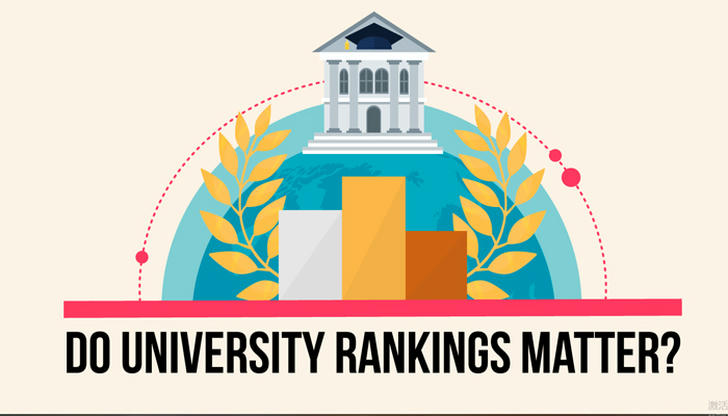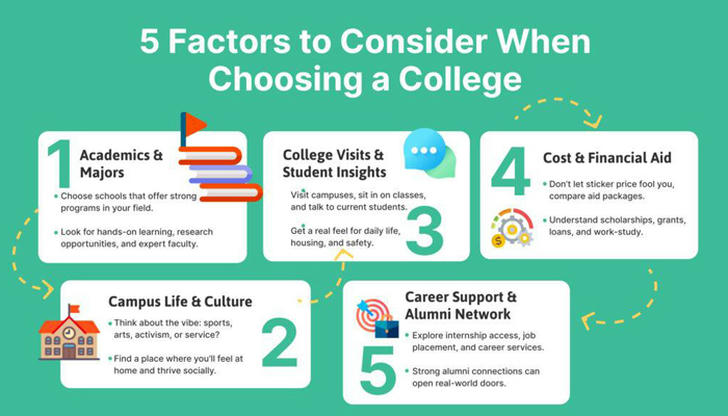Choosing the Right University: Factors Beyond Rankings
When it comes to choosing a university, global rankings are often the first place students and parents look. Whether it's the QS World University Rankings, Times Higher Education, or U.S. News & World Report, these lists dominate conversations around "top schools." But do rankings tell the whole story?
While they offer a helpful starting point, rankings focus heavily on metrics like research output and international reputation—factors that may not reflect the actual student experience. In reality, the best university for you may not be the one at the top of the list, but the one that best fits your personal, academic, and professional goals.

The Limitations of Rankings
University rankings are designed with specific audiences in mind—governments, donors, and researchers—not always students. They often emphasize:
- Research performance: measured by published papers and citations
- Academic reputation: based on surveys, not necessarily quality of teaching
- Internationalization: number of international faculty and students
However, they often neglect areas like teaching quality, student happiness, or employability in local contexts. Different ranking systems also use different methodologies, so a school ranked #30 in one list might be #150 in another.
More importantly, rankings don't capture your needs: your desired major, your learning style, your budget, or your career plans.

Academic Fit
Choosing the right academic program is more important than choosing the most "prestigious" university. Consider:
- Does the university offer your major or area of interest?
- How specialized or flexible is the curriculum?
- Are there opportunities for research, independent projects, or cross-disciplinary study?
Some universities might rank lower overall but have world-class departments in specific fields. For example, a university might be globally known for engineering but less so in humanities.
Also, consider the faculty. Are the professors active in your field of interest? Do they have relevant industry experience? Small class sizes and approachable faculty can make a big difference in your academic growth.
Teaching and Learning Quality
One of the biggest challenges in using rankings is that they rarely reflect teaching quality. Instead, investigate:
- Student-to-faculty ratio: Smaller classes usually mean more personal attention.
- Teaching methods: Are the courses interactive? Do they involve real-world applications, labs, or case studies?
- Learning support: Are there academic advisors, writing centers, or peer tutoring programs?
A highly ranked university with large lecture halls and little support may not be the right environment for everyone.

Campus Environment and Student Life
University life isn’t just about academics—it's also where you’ll live, make friends, and grow personally. Think about:
- Campus culture: Is the student body diverse? Are there active clubs or student organizations?
- Size and setting: Do you prefer a big-city environment or a quieter, rural campus?
- Facilities: Libraries, gyms, housing, dining, and health services all contribute to quality of life.
Some students thrive in a vibrant, socially active campus; others prefer quieter, more academically focused communities. Visit campuses if you can—or take virtual tours online.
Cost and Financial Considerations
Cost is a crucial factor—sometimes more important than ranking. Evaluate:
- Tuition fees: Look at the full cost for domestic and international students.
- Living expenses: Housing, transportation, and food can vary widely by city or country.
- Financial aid: Does the university offer scholarships, grants, or work-study programs?
Even top-ranked universities can be unaffordable without aid. Meanwhile, some lesser-known schools offer generous scholarships and lower tuition, allowing you to graduate with less debt.

Career Preparation and Outcomes
Your ultimate goal may be to land a job or attend graduate school. So, investigate each university’s:
- Career services: Do they offer resume help, interview prep, or job fairs?
- Internship opportunities: Are there co-op or internship programs in your field?
- Alumni network: A strong network can open doors to jobs and mentorship.
- Graduate employability: Look at employment rates and salaries after graduation.
Some universities may not be high in global rankings but have excellent job placement rates in specific industries or regions.
Location and Accessibility
Where you study affects your daily life. Consider:
- Geographic location: Is it close to home or far away? In a city or small town?
- Safety and lifestyle: What’s the local culture like? Is it a place you’ll enjoy living?
- Transportation and travel: How easy is it to get around? Is public transport available?
- Visa policies: For international students, how easy is it to stay, work, or travel during and after your studies?
For example, studying in Canada or Germany might offer post-graduation work opportunities that some countries don’t.
Flexibility and Future Opportunities
Your goals may change over time, so flexibility is important:
- Can you change majors easily?
- Are there dual-degree or study-abroad programs?
- Can you pursue graduate studies at the same institution?
- Does the university offer part-time or online options if needed?
The ability to adapt your educational path is often more valuable than any single ranking.
How to Research Universities Effectively
Don’t rely on rankings alone. Here are smarter ways to evaluate schools:
- Visit official university websites and read course descriptions.
- Attend virtual open days or webinars hosted by departments.
- Read reviews on forums like Reddit, The Student Room, or Quora.
- Talk to current students or alumni to get honest insights.
- Use comparison tools to weigh options based on your own criteria (e.g., program, location, cost, support).
Create a shortlist based on your priorities, not just someone else’s ranking.

Conclusion
While rankings can provide useful context, they should never be the sole basis for choosing a university. What truly matters is fit — how well a university matches your academic goals, personal preferences, financial situation, and long-term plans.
The right university is the one that supports your growth, challenges you intellectually, and prepares you for the future you want — even if it's not in the top 10.
So go beyond the numbers. Ask deeper questions. And most importantly, choose a university that feels right for you.
